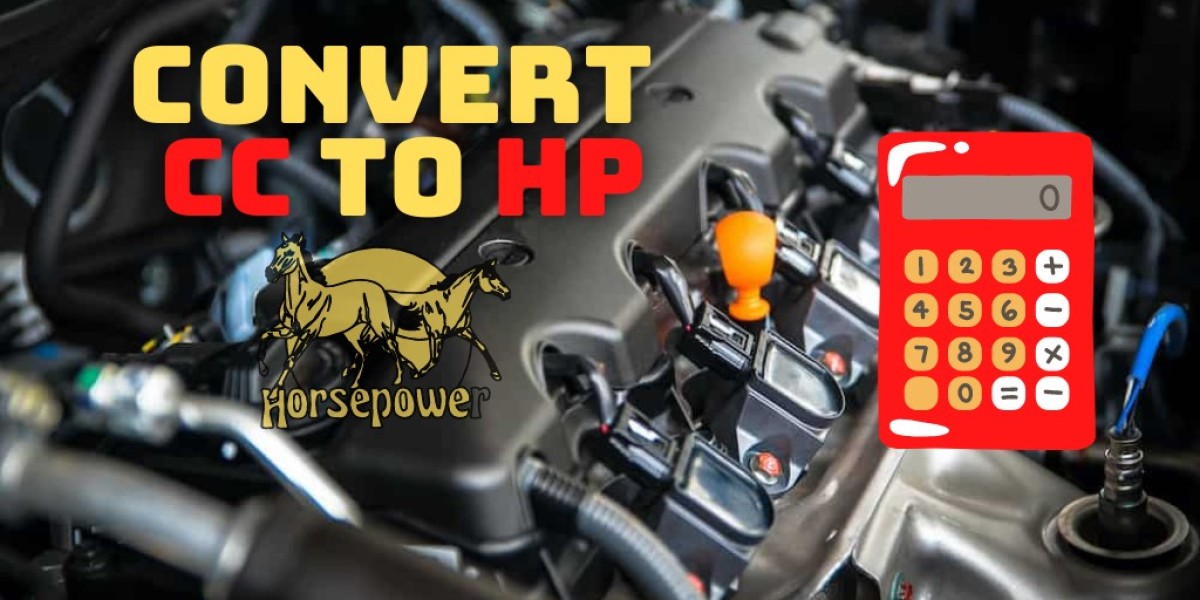In the world of automotive and mechanical engineering, the relationship between cubic centimeters (CC) and horsepower (HP) is critical. While many factors influence this conversion, one of the most crucial aspects to consider is engine efficiency. In this blog post, we'll explore the significance of engine efficiency in mltomg.com and why it plays a vital role in determining a vehicle's overall performance.
What Is Engine Efficiency?
Engine efficiency refers to how well an engine converts the energy from fuel into useful mechanical work, such as turning the wheels of a vehicle. It's a measure of how effectively an engine utilizes the energy provided by the combustion process.
Efficiency and CC to HP Conversion
Engine efficiency is closely linked to CC to HP conversion because it directly impacts the power output of an engine for a given displacement. Here's why engine efficiency matters:
Maximizing Power Output:
An efficient engine can extract more power from the same amount of fuel and displacement. This means that, for a given CC, a more efficient engine will produce more HP.
Reducing Fuel Consumption:
Efficient engines not only produce more power but also use fuel more effectively. This results in better fuel economy, which is a crucial consideration in today's automotive industry.
Lower Emissions:
An efficient engine not only benefits performance and fuel economy but also has a positive environmental impact. It produces fewer harmful emissions, contributing to cleaner air and reduced pollution.
Enhancing Longevity:
Efficiency also plays a role in the engine's lifespan. An engine that operates efficiently experiences less wear and tear, potentially extending its overall longevity.
Improving Engine Efficiency
Now that we understand the importance of engine efficiency, let's explore how it can be improved:
Advanced Combustion Technologies:
Modern engines incorporate advanced combustion technologies, such as direct fuel injection and variable valve timing, which optimize the combustion process for efficiency.
Reduced Friction:
Engine components are designed with precision to minimize friction, which can waste energy. This includes using high-quality lubricants and materials.
Optimized Air-Fuel Ratio:
Maintaining the correct air-fuel ratio is crucial for efficient combustion. Sophisticated engine management systems constantly adjust this ratio for optimal performance.
Improved Thermal Efficiency: Engines are designed to recover and utilize waste heat, improving overall thermal efficiency.
Real-World Implications
Understanding engine efficiency's importance in CC to HP conversion has real-world implications for consumers and the automotive industry:
Economic Benefits:
Consumers benefit from improved fuel efficiency, which leads to cost savings over time. More efficient engines also reduce the carbon footprint.
Technological Advancements:
The pursuit of greater engine efficiency drives technological innovation in the automotive sector. This includes the development of hybrid and electric vehicles, which are inherently more efficient than traditional internal combustion engines.
Regulatory Compliance:
Stringent environmental regulations require automakers to produce vehicles with higher efficiency and lower emissions. This drives the industry to continually improve engine efficiency.
Performance and Competitiveness:
In motorsports and high-performance vehicles, engine efficiency is a critical factor. Efficient engines can deliver more power without increasing displacement, which is often limited by regulations.
Conclusion:
In the realm of CC to HP conversion, engine efficiency is not just a technical detail but a fundamental factor that influences an engine's performance, economy, and environmental impact. The pursuit of greater efficiency has led to advancements that benefit consumers, drive innovation, and contribute to a more sustainable future. Understanding the role of engine efficiency in this conversion is essential for anyone interested in the world of engines and automotive technology.








